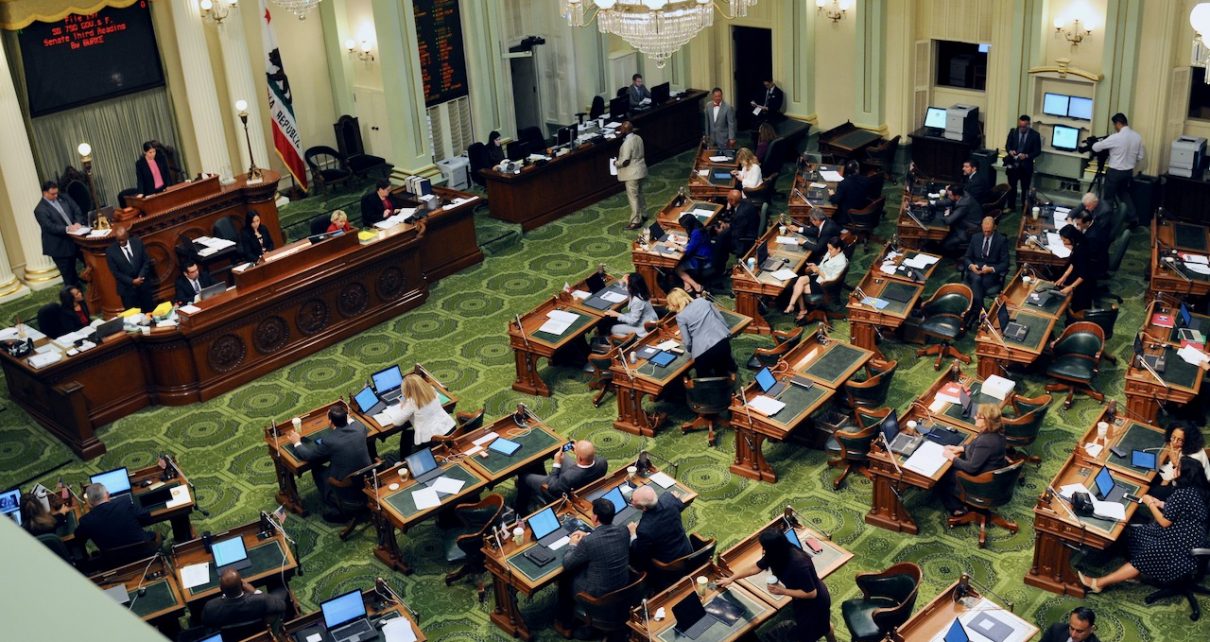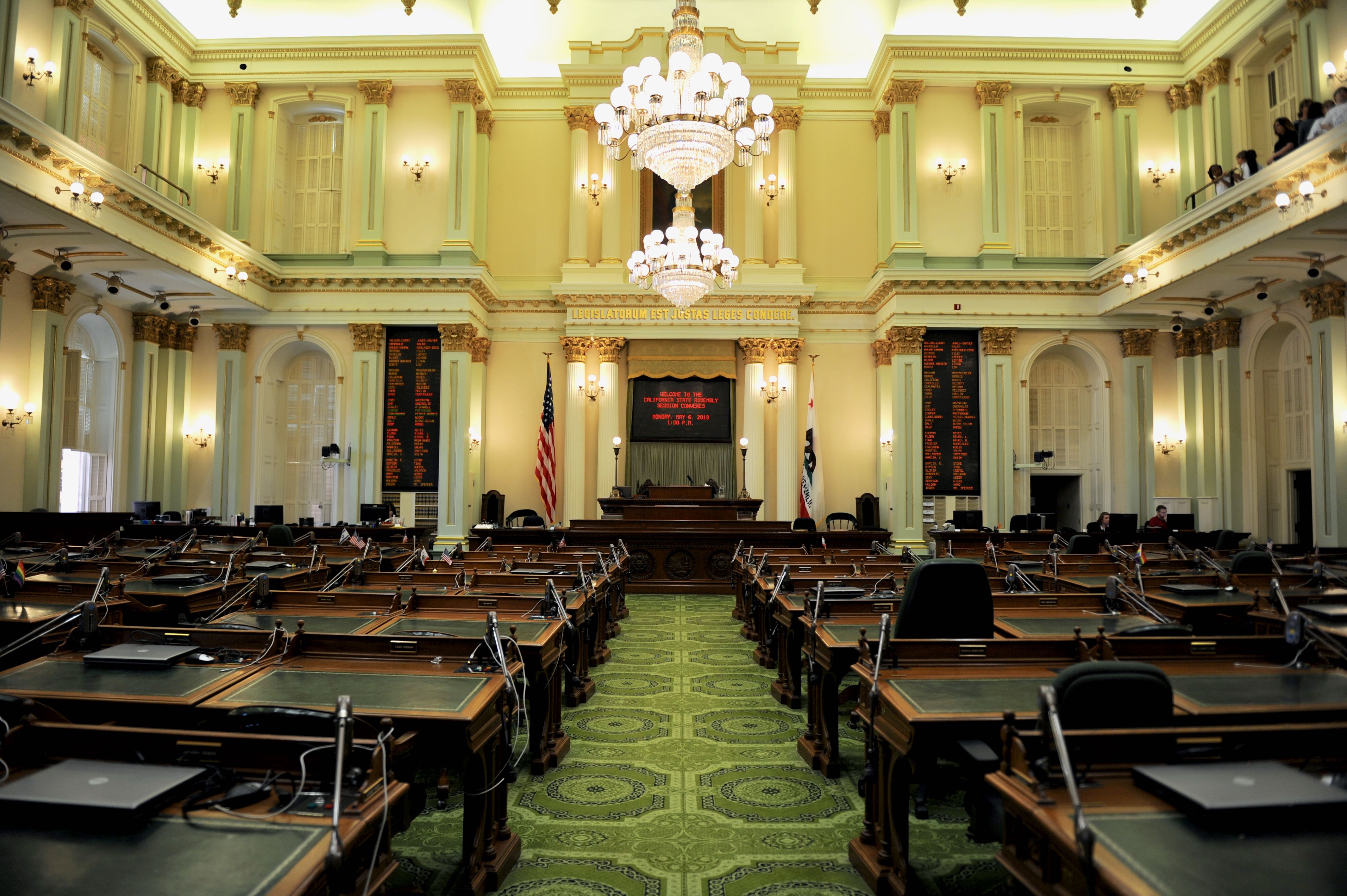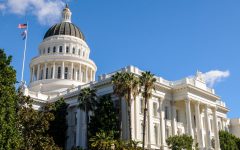
California State Assembly Chamber. (Photo: Kevin Sanders for California Globe)
Frequently Asked Questions about Legislative Branch Support Agencies
What is the Legislative Analyst Office?
By Chris Micheli, December 31, 2023 2:30 am
What is the Office of Legislative Counsel (OLC)? Founded in 1913, the Office of Legislative Counsel is a nonpartisan public agency that drafts legislative proposals, prepares legal opinions, and provides other confidential legal services to the Legislature and Governor.
What other services does OLC provide? The OLC also provides computer services, data networking, and related customer services to the Legislature.
Who is in charge of the OLC? The Legislative Counsel of California is Cara Jenkins, who was appointed by the members of the Assembly and Senate.
Does the OLC advise all branches of government? No, the OLC only serves as legal counsel to the Legislature and its members, as well as the Governor and his or her staff (but not the other constitutional officers or the judicial branch).
What role does OLC play in legislation? Legislation cannot be introduced unless it has been approved by the Legislative Counsel as being in proper bill form. Every piece of legislation and every amendment must be accompanied by a “Legislative Counsel’s Digest” that summarizes current law and describes how the measure changes existing law.
What legislative publications are handled by the OLC? The OLC is responsible for maintaining a comprehensive data base on California legislation and California law. The OLC is also responsible for maintaining various legislative indexes and summaries of enacted legislation.
What is the Legislative Analyst Office (LAO)? The LAO has provided fiscal and policy advice to the Legislature for more than 75 years and it is known for its fiscal and programmatic expertise and nonpartisan analyses of the state budget. The LAO serves as the “eyes and ears” for the Legislature to ensure that the executive branch is implementing legislative policy in a cost efficient and effective manner.
Who is in charge of the LAO? The Legislative Analyst of California is Gabriel Petek, who was appointed by the members of the Assembly and Senate. The LAO is overseen by the Joint Legislative Budget Committee (JLBC), a 16-member bipartisan committee comprised of an equal number of Assembly Members and Senators. The LAO has a staff of more than 40 analysts and support staff who cover all of the relevant budget and policy areas.
How does the LAO assist the Legislature? LAO analyzes the annual Governor’s budget and it prepares a series of analyses from the beginning to the end of the budget process on overarching fiscal issues, as well as specific departmental budget proposals and LAO offers its recommendations for legislative action. Staff of the LAO also work with these committees throughout the budget process and provide public testimony on the office’s recommendations.
Does the LAO provide other services? Yes, the LAO also prepares the ballot analyses for each measure on the statewide ballot.
What is the California State Auditor (CSA)? The CSA conducts independent financial and performance audits as directed by statute or by JLAC, which is a joint committee that oversees the work of the CSA. It is comprised of an equal number of Senators and Assembly Members.
Who is in charge of the CSA? The CSA is headed by State Auditor Grant Parks, who is appointed by the Joint Legislative Audit Committee (JLAC).
Are there other duties performed by the CSA? Yes, the CSA administers the “California Whistleblower Protection Act” and may investigate alleged violations of law as directed by the Joint Legislative Audit Committee. The CSA also conducts audits at different levels of government based upon the audit requests approved by JLAC.
What standards govern the CSA’s work? All of the CSA’s audits and evaluations must be conducted in accordance with the Government Auditing Standards published by the Comptroller General of the United States and the standards of the American Institute of Certified Public Accountants.
What is the California Research Bureau (CRB)? The CRB provides non-partisan research services to the Legislature, Governor, and other elected state officials.
What type of research requests are done by CRB? The CRB’s services include preparation of reports on current policy issues, including case studies and examples, data analysis, and development of legislative proposals.
Who is in charge of the CRB? The Director of the CRB is Tom Negrete. The CRB is an arm of the California State Library and it is also involved in special projects and events with partners in the Legislature and various state agencies.
What other services are offered by CRB? The CRB regularly publishes new studies and reports about matters of current legislative or administration interest and it provides specialized library services to its clients. In addition, the CRB convenes regular seminars and presentations by academics and think tank scholars doing work related to current policy issues.
What is the California Law Revision Commission (CLRC)? The CLRC’s official mission is to assist the Legislature and Governor by examining California laws and recommending needed reforms to those laws.
Who is in charge of the CLRC? The commission is comprised of gubernatorial appointees. The CLRC is an independent state agency that was created by statute in 1953.
What services does the CLRC provide? The CLRC also recommends repeal of statutes that have been held to be unconstitutional or whose legality has been questioned. The CLRC reports to the Legislature on its studies and submits a list of topics to be studied, which requires approval of concurrent resolutions adopted by the Legislature.
- Mergers of Unincorporated Associations - February 21, 2026
- A Historic Look at Bill Introductions in the California Legislature - February 21, 2026
- Construction of Eminent Domain Law - February 21, 2026




